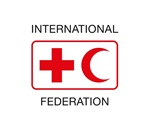Existing blood services have been expanded to support the needs of incoming migrants. As a result, in emergency situations, where blood is needed, the lives of migrants can be protected.
The Lebanese Red Cross is an important provider of blood products in Lebanon. Twelve blood banks exist across the country and provide non- discriminatory services to all in need, including migrants. The Lebanese Red Cross blood transfusion centres are well equipped. For example, the Spears centre is fitted with an irradiator (although some instruments are still needed). The Lebanese Red Cross is also working hard to follow the safety and security standards decided by the WHO and the Lebanese Ministry of Public Health to ensure the safety of blood. Any individual in need of blood is eligible to call the nearest Lebanese Red Cross blood transfusion centre to have their blood needs met. Given the significant population increase after the arrival of an estimated 1.5 million Syrians in Lebanon (with a national population of over four million), the Lebanese Red Cross has been increasing its blood bank capacity. This has been sought through an increase in campaigns that seek to engage more blood donors.
In 2015, blood banks supported 23,864 people, of which 5,119 were Syrian migrants. The Lebanese Red Cross supports 15 per cent of national needs for blood components.
Design. [P1] Focuses on meeting vulnerability of people in need of blood, including migrants.
Implementation. [P2] Integrates migrants in humanitarian programming.
- The increased demand due to the surge of migrants has put a strain on staff, maintenance, and availability of blood products.
- Ensuring sufficient financial resources to provide the necessary blood products. The surge in demand has been coupled with a new regulation from the Ministry of Public Health which requires use of blood bags with integrated leukocyte reduction filters. The cost of a blood bag has, as a result, increased from 5 to 17 US dollars.
- It is important to plan for contingencies.
Smart practices
Smart practices report and database survey
About the report
People migrate in pursuit of a better life for themselves and their families. As described in the International Federation of Red Cross and Red Crescent Societies’ (IFRC) Policy on Migration, “migrants are persons who leave or flee their habitual residence to go to new places – usually abroad – to seek opportunities or safer and better prospects.
Read more
About the International Federation

